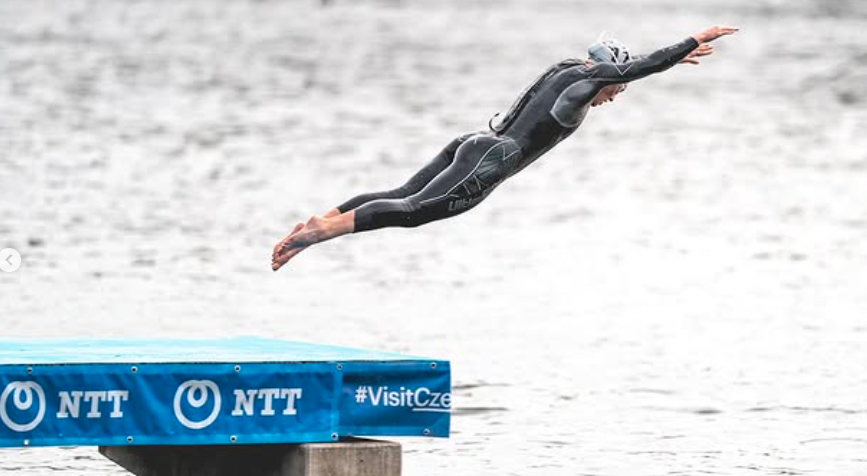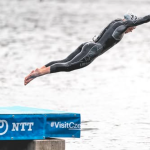You’ve just powered through the swim, eyes set on T1, and suddenly – the ground wobbles. For some triathletes, dizziness after a swim is a fleeting annoyance. For others, it’s enough to derail a race. The truth is, while most cases are harmless, post-swim dizziness can come from a surprisingly wide range of causes.
At Triathlon Today, we believe this is a topic worth addressing head-on, because it affects more athletes than you might think. Whether you’ve felt a brief lightheaded spell after climbing out of the water or struggled with persistent vertigo, understanding the “why” is the first step toward prevention.
It’s Not Just the Swim – It’s the Body’s Reaction
Swimming is unique compared to cycling and running: you’re horizontal, often cold, sometimes squeezed into a wetsuit, and you can’t just “sip a bottle” when you need to. That cocktail of conditions challenges not only your muscles but also your inner ear, blood pressure, and even your nerves.
Here are some of the main culprits behind dizziness in the water:
- Fuel and hydration mishaps: Skipping breakfast, racing on nerves, or sweating more than you realize in warm, wetsuit-legal swims can leave you with low blood sugar and dehydration. Both can trigger lightheadedness as soon as you stand up.
- Cold water confusion: Even mild temperatures can shock the body. Cold water on the eardrum can send misleading signals to your brain, while the body’s vascular system flips between constriction and dilation. Result? Dizziness.
- Wetsuit squeeze: A suit that’s too tight doesn’t just restrict shoulders—it can press on blood vessels and nerves in your neck. That compression, combined with shallow breathing or panic, can make your head spin.
- Anxiety and panic: Race starts are chaotic. Choppy water, poor visibility, adrenaline overload—it’s a perfect storm. Hyperventilation and stress hormones can both throw your equilibrium off.
- Orthostatic drops: Going from horizontal (swimming) to vertical (running out of the water) is harder on the body than you’d expect. Blood rushes to the legs, and if your system can’t adjust quickly enough, dizziness follows.
- Inner ear and neck issues: Conditions like benign positional vertigo, vestibular weakness, cervicogenic dizziness, or even rare syndromes like Bow Hunter’s can all be triggered by swim motions such as head rotation or sighting. While less common, they’re important to rule out.
What You Can Do Right Now
Fortunately, a few proactive steps can dramatically reduce the odds of wobbling out of the swim:
- Fuel and hydrate properly before training and racing—even if your stomach is nervous.
- Kick more toward the end of your swim to wake up the leg muscles and help with blood flow.
- Wear earplugs if cold water tends to mess with your balance.
- Make sure your wetsuit fits—comfortably snug, not constricting.
- Practice calming techniques for race-day nerves. Controlled breathing, visualization, and even a “safety stroke” can bring down panic levels.
And, importantly: don’t wait until race day to troubleshoot. Practice these strategies in training.


